In New Space Thriller 'One Way,' a Mars Colony Turns Deadly: Q&A with the Author
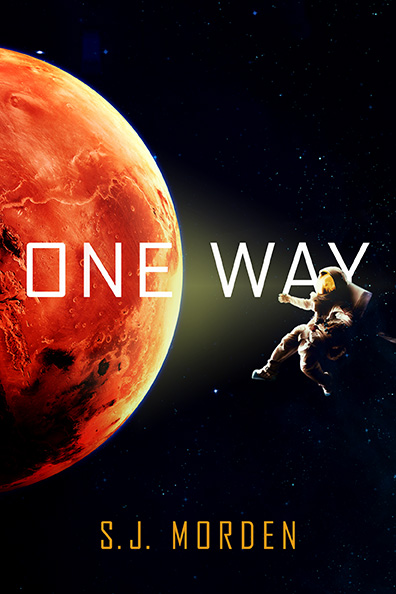
In S.J. Morden's "One Way" (Orbit Books, 2018), a private company gives eight criminals a way out of life in prison: a one-way trip to build a base on Mars. But the real challenges of training for, and surviving on, another world are soon overshadowed by several deaths, which begin to look less than accidental. The novel was released by its U.S. publisher today (April 10).
Space.com caught up with Morden, a prolific science-fiction author with a space science background, about his vision of the Red Planet, what readers can expect from his suspenseful novel, and whether Mars colonization will become a reality.
Morden has a degree in geology; throughout this interview, you can see technical maps of Mars he drew during the writing process. [Read an excerpt from "One Way" here]
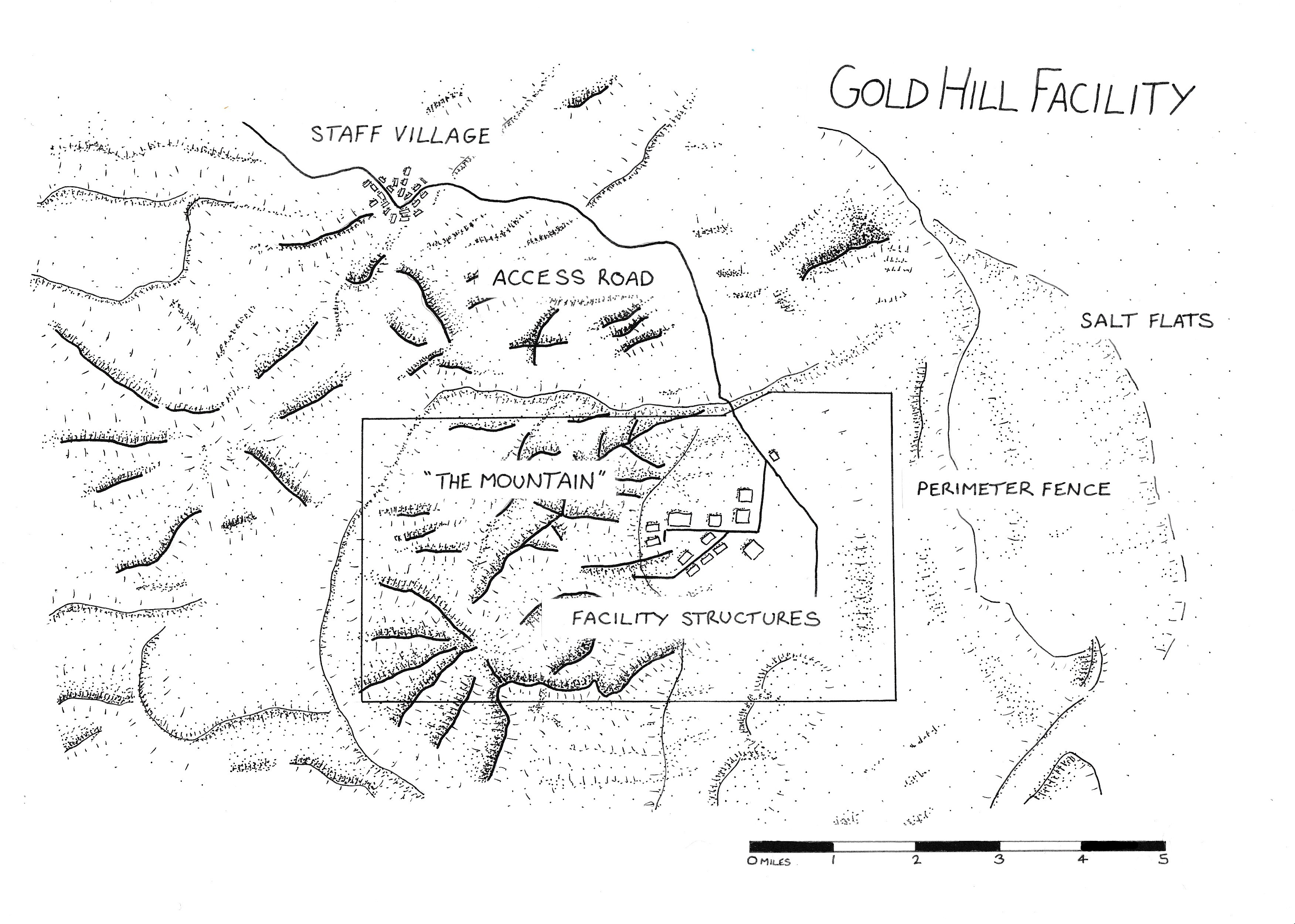
Space.com: What gave you the idea for this book?
S.J. Morden: It's a slightly more convoluted route than normal. What normally happens is, I sit there in my study and say, "That would be a really good idea; let's write that" — and I do. Virtually all the books that I've written and had published have been on spec. I've written them, and I've presented them to my agent — and he's had the hard job of going out and selling them.
For this one, it was slightly different, in that my publishers, [the U.K. publishing house] Gollancz, actually approached me and said, "We'd love you to write a book about Mars. What can you come up with?"
I don't normally show people my ideas; it was slightly strange having almost a collaborative process for a very bare-bones, one-page plot synopsis. And they said, "Right, that was great; you can go away and write it now."
Get the Space.com Newsletter
Breaking space news, the latest updates on rocket launches, skywatching events and more!
I assumed, when I was first asked to do this, that it was just going to be a one-off [project], and about halfway through the process, they came back and said, "How open-ended can we leave this?" And [I said], "You want a sequel, don't you?" And they said, "Yeah, we could go for a sequel." After this, it's going to be quite difficult to top. So I'm in the process of doing the structural edits for the sequel. And yes, it was quite difficult to top the first one, but I think we've probably managed it. [How Living on Mars Could Challenge Colonists (Infographic)]
Space.com: What aspects of the story excited you?
Morden: You're combining two elements. You have the exploration of Mars — I find that endlessly fascinating anyway, the idea of going somewhere and seeing things that no one else has ever seen, walking where they have never walked before — and the technological solutions that you have to deliver and maintain in order to keep life. That's a story in itself. But I find you don't really have a story until you have people; the people are what make the story real. While it would be lovely to write a story about, say, a robot exploring Mars — and it would; I can imagine a children's picture book of [NASA's rover] Curiosity, or something like that, the brave little robot that could — [the human characters] get the readers into the story. And to weave a story around the difficulties and the problems of living on another planet, I think that was the "in" part of it and the various ways in which we could do that.
Obviously, I'm not in any way, shape or form suggesting that the events in "One Way" are a good model. It's certainly something that we probably want to avoid, and if by writing the book I've more or less closed down that possibility, I would actually look on it as job done.
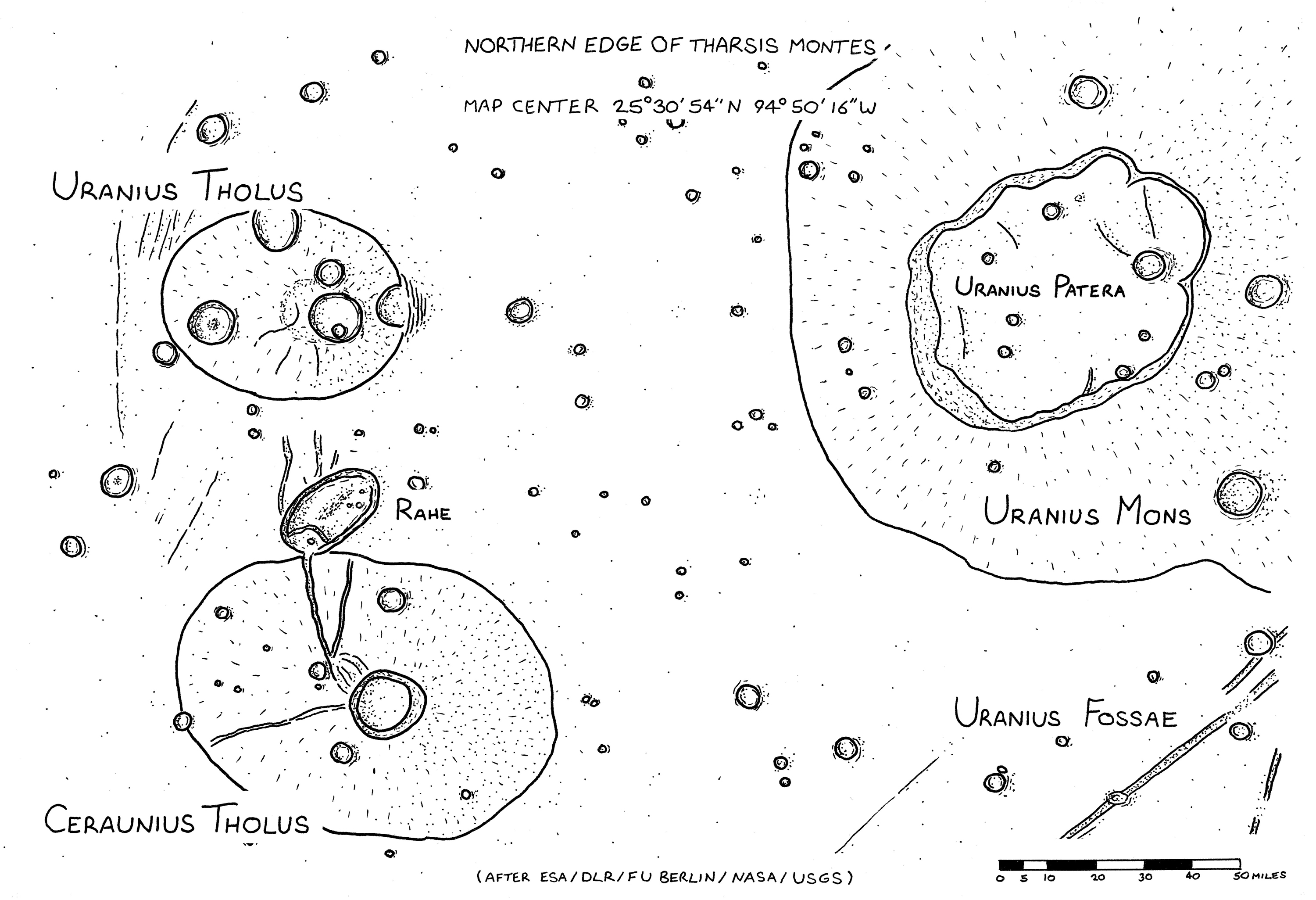
Space.com: For people who haven't read the book, how much more context can you give that statement?
Morden: From Chapter 1, it becomes patently obvious that a private corporation [is] basically co-opting prison labor to build a base on Mars. The "whys" and "wherefores" of that become apparent during the book.
Space.com: How much of the mechanics of the journey to Mars did you work out?
Morden: I have notebooks full of stuff, and my son, bless him, is an undergraduate student studying aerospace engineering with a definite sideline in spacecraft; I have run plenty of the figures by him. My math isn't bad, but he can generally stop the horrible mistakes that I've made. Everything in the book — all the flight times and working out the payloads and the nature of the base itself, and the suits and the buggies, and the amount of how they store power and make power — all of that is pretty much today's technology. I don't think I invented anything. The only bit of magic I allowed myself is the sleep tanks to get them there in the first place … The rest of it, we could do that now. [How Astronauts Could Hibernate On Mars Voyage]
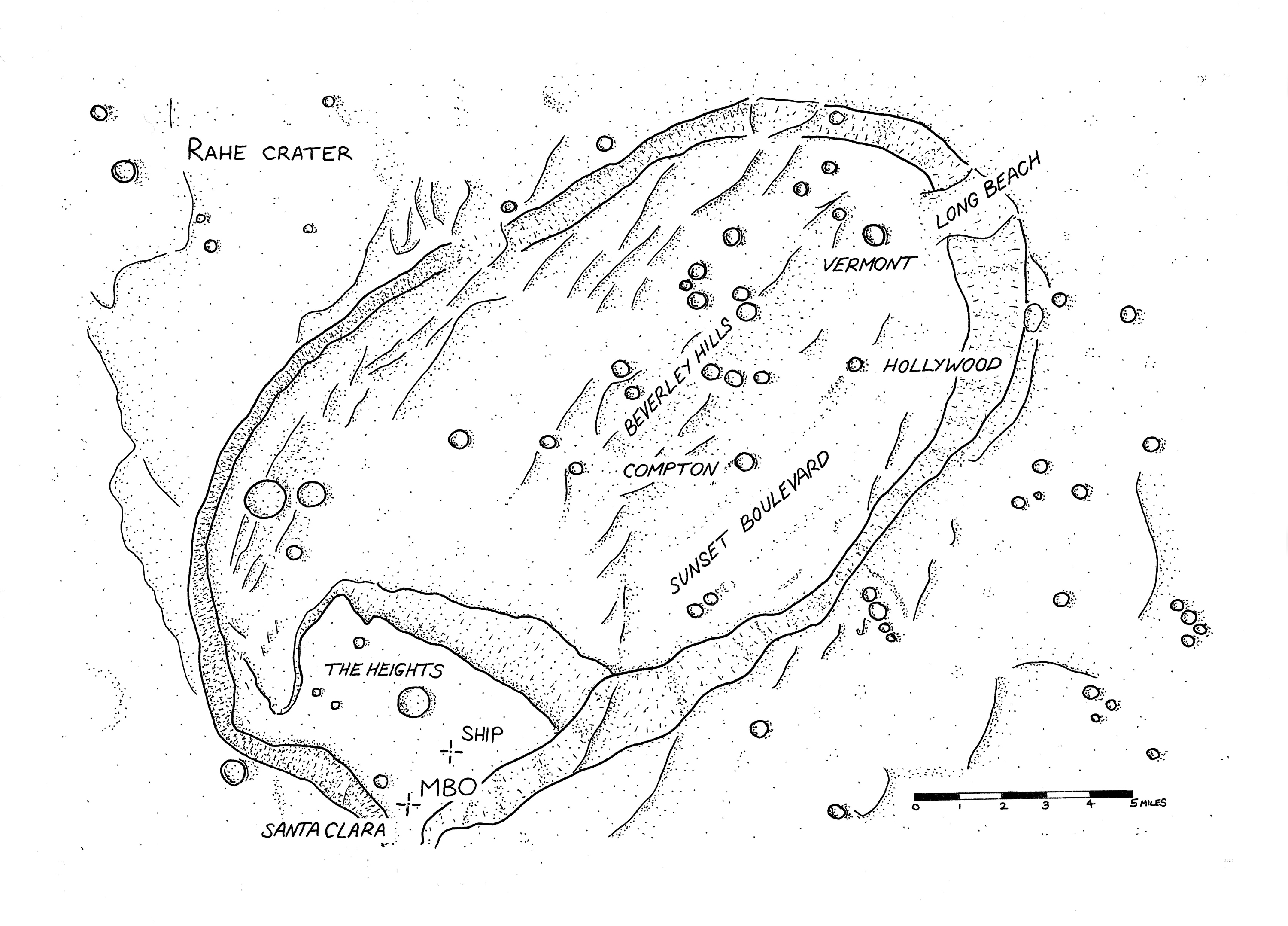
Space.com: What was the most challenging part of the base to design?
Morden: In some respects, the actual base itself — protecting yourself [in] what is essentially a near vacuum — is relatively straightforward. We can build things that can [allow us to] protect ourselves from [this] vacuum relatively easily … The Mars base I posit is working on a third of an atmosphere of pure oxygen inside the modules. That bit wasn't terrible.
The significant problem I had was, could they grow enough food? The mechanical aspects of space travel are pretty much sorted. We know how to clean an atmosphere; we know how to build a pressure vessel; we know how spacesuits work. We can reclaim water quite well now, but can we grow food to feed the people? How can we do that? Do we transport live seeds? Do we transport them frozen in the hopes that they defrost? There's a lot of work that needs to be going on. One thing that you discover really quickly is that Martian soil is full of chlorate, and chlorate is not good for growing stuff in. My lot are basically making water and flushing out the chlorate just to leave them with sterile dirt at the end where they can just use that as a substrate for growing things in.
[The challenge] was literally the amount of food that a crew [would] require to keep themselves not just alive, but healthy, without vitamin and mineral deficiencies — that's the hard work. On top of that, you've got things like ionizing radiation, skin cancers, cataracts and all the other terrible things that can happen due to a prolonged exposure of Mars. There's no ozone layer, and even though it's obviously further away from the sun, the ultraviolet radiation load is not insignificant. People are going to have to watch out, certainly long term, for other health issues. And then, of course, you've got the third of a gravity, and that will thin the bones, and all sorts of stuff like this. It's the biological factors which are the difficult things about space travel, not necessarily the mechanical. But I also know an awful lot about growing things hydroponically now. That I didn't even know I needed to know.
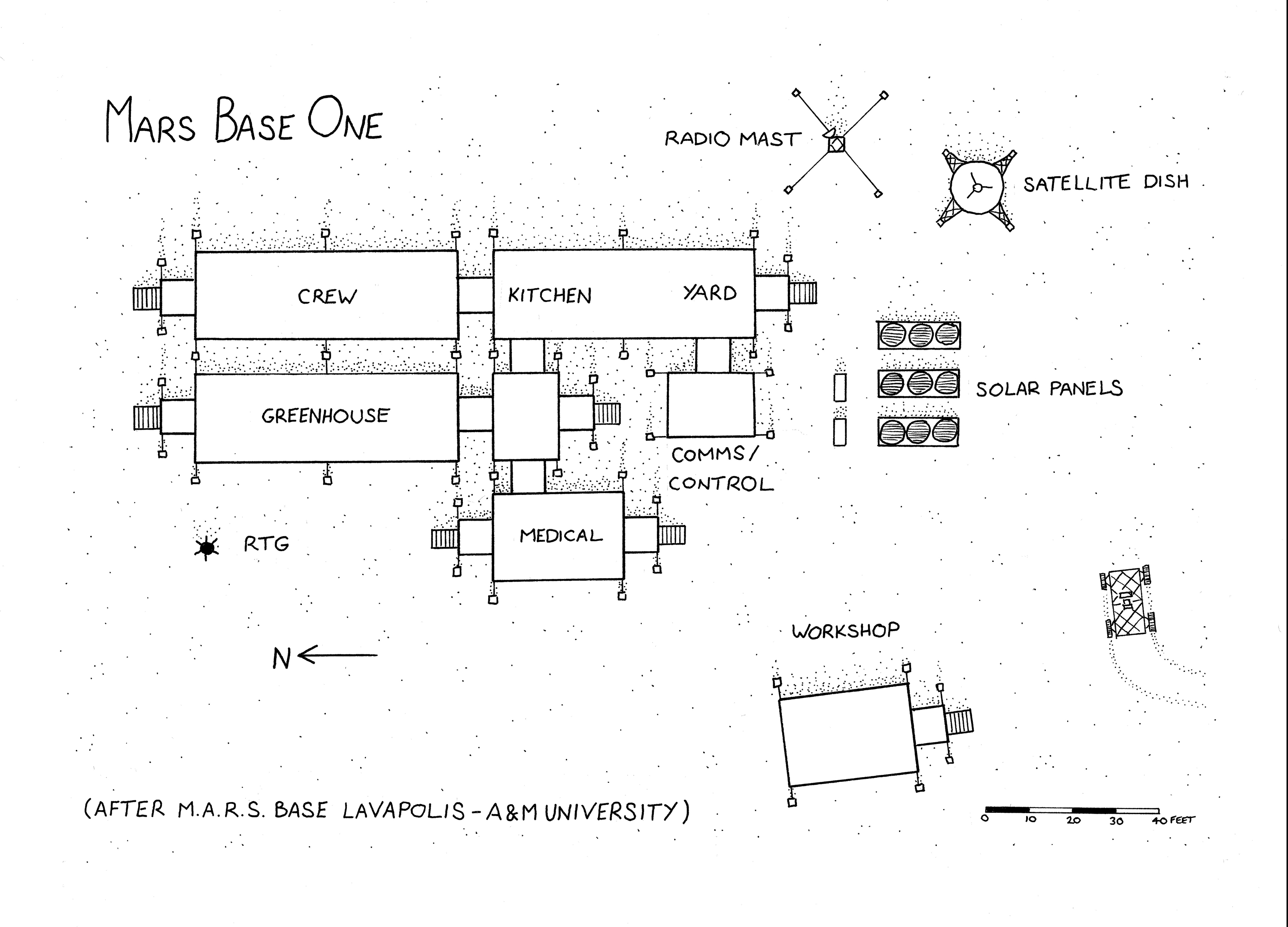
Space.com: A lot of the difficulties the crew runs into are artificial to a degree, right? A mission that was organized in a different way would have gone so violently wrong.
Morden: Yes, that's absolutely correct. A lot of the problems that they encounter are entirely man-made. And I would hope that an actual Mars mission would be, frankly put, less stabby than this one.
My son was pointing out that, the lunar treaty [the Outer Space Treaty of 1967], which many nation-states have signed, lays obligations only on nation-states, only on the signatories of those countries, not on corporations. That's an interesting gap. Because back in the 1960s, we would never have contemplated anything else but nations and multinational space travel and expeditions. We would never have contemplated private individuals being wealthy enough to fund a successful space program. It would be interesting to speak to a space lawyer as to exactly how far down these obligations the nation-states have signed go, even to the point of … a nation can't plant a flag on an asteroid and say, "This is ours," but can a corporation do that?
Space.com: Do you think people will really colonize Mars?
Morden: I can certainly see us exploring, and I can see us spending time, significant lengths of time, on exploring other planets, going back to the moon, going to Mars, possibly going to some of the moons of Saturn and Jupiter. The problem that is always going to be present is the length of the supply line between where things are made and where things are used. If something breaks down that's important, then you're either going to need someone on-site with a spare and the technical expertise to fit it, or some way of manufacturing that spare part actually on Mars.
Yes, we could take 3D printers to Mars, but we would also need the feedstock to go into those 3D printers. The question of going there and doing useful science is one thing. Going there permanently to live is another.
Space.com: You've already written the sequel, and alluded to a potential third book. What's in store?
Morden: In all of the books that I've written, I've never written the same book twice, even when those books are part of a series. I've always said, 'I've told that sort of story for that one. What sort of story can I tell now?' If you consider "One Way" is "Alien," the sequel will be very much the "Aliens" to the first book. We've turned it up to 11, and it's genuinely terrible, and I apologize now. It's then trying to find something different for the story to work towards. I could probably come up with some really grim ideas that I can put my people through.
But yes, I'm working on other stories set in the same universe, I suppose is the best way of putting it, in the way that you've set up a system that private corporations are taking the lead, in some respects, in space exploration, with the nation-states playing catchup. There's plenty more stories to tell. In some respects, it's almost like the Wild West, but in space.
Space.com: Any final thoughts?
Morden: While my version of Mars is not a particularly happy one, it's not unrelentingly grim. There are moments of humor and camaraderie and working together to overcome what are really quite difficult problems. This is the thing: I appreciate that this is not high art, but I'd like to think I've managed to inject some discussion of the human condition in it. … This is a fast, fun read. But if, once you've closed the book, you think about "What would I have done? How would I have reacted?" then I would consider that to be a good thing.
This interview has been edited for length. You can buy "One Way" on Amazon.com.
Email Sarah Lewin at slewin@space.com or follow her @SarahExplains. Follow us @Spacedotcom, Facebook and Google+. Original article on Space.com.
Join our Space Forums to keep talking space on the latest missions, night sky and more! And if you have a news tip, correction or comment, let us know at: community@space.com.

Sarah Lewin started writing for Space.com in June of 2015 as a Staff Writer and became Associate Editor in 2019 . Her work has been featured by Scientific American, IEEE Spectrum, Quanta Magazine, Wired, The Scientist, Science Friday and WGBH's Inside NOVA. Sarah has an MA from NYU's Science, Health and Environmental Reporting Program and an AB in mathematics from Brown University. When not writing, reading or thinking about space, Sarah enjoys musical theatre and mathematical papercraft. She is currently Assistant News Editor at Scientific American. You can follow her on Twitter @SarahExplains.









